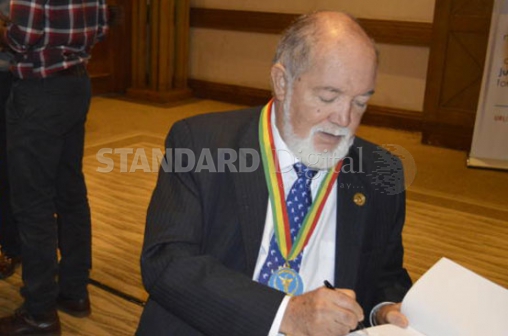×
The Standard e-Paper
Join Thousands Daily

NAIROBI: Seychelles founding President James Mancham was in Nairobi to receive the Africa Peace Award from the United Religions Initiative Africa, one of the many accolades since he quit power 39 years ago.
And the former Head of State is as humble as they come. There were no hawk-eyed body guards hovering around the former President or menacing police officers in sight.